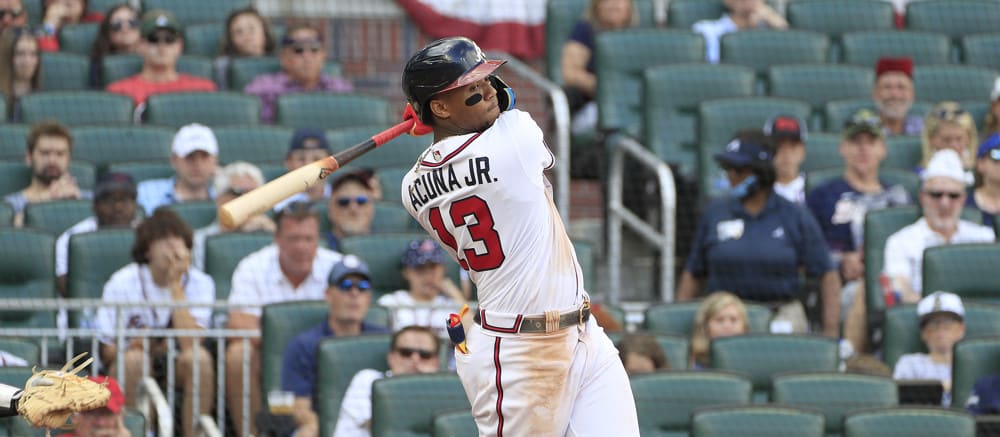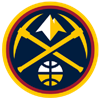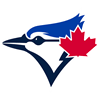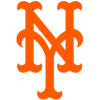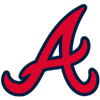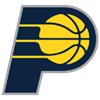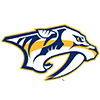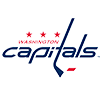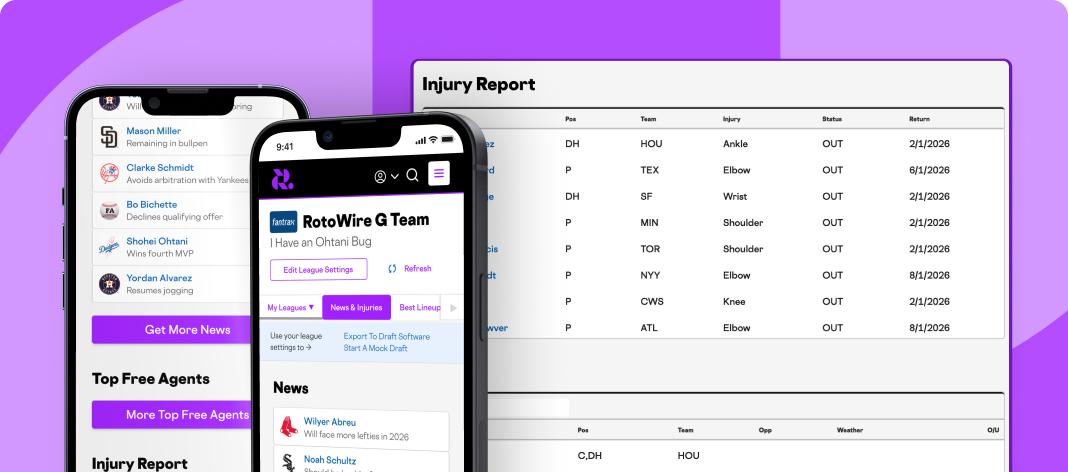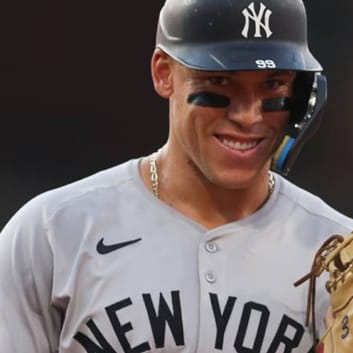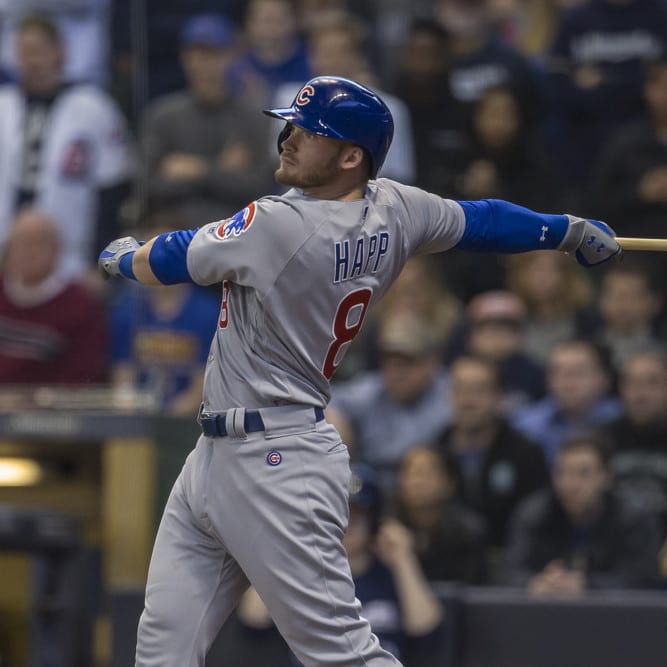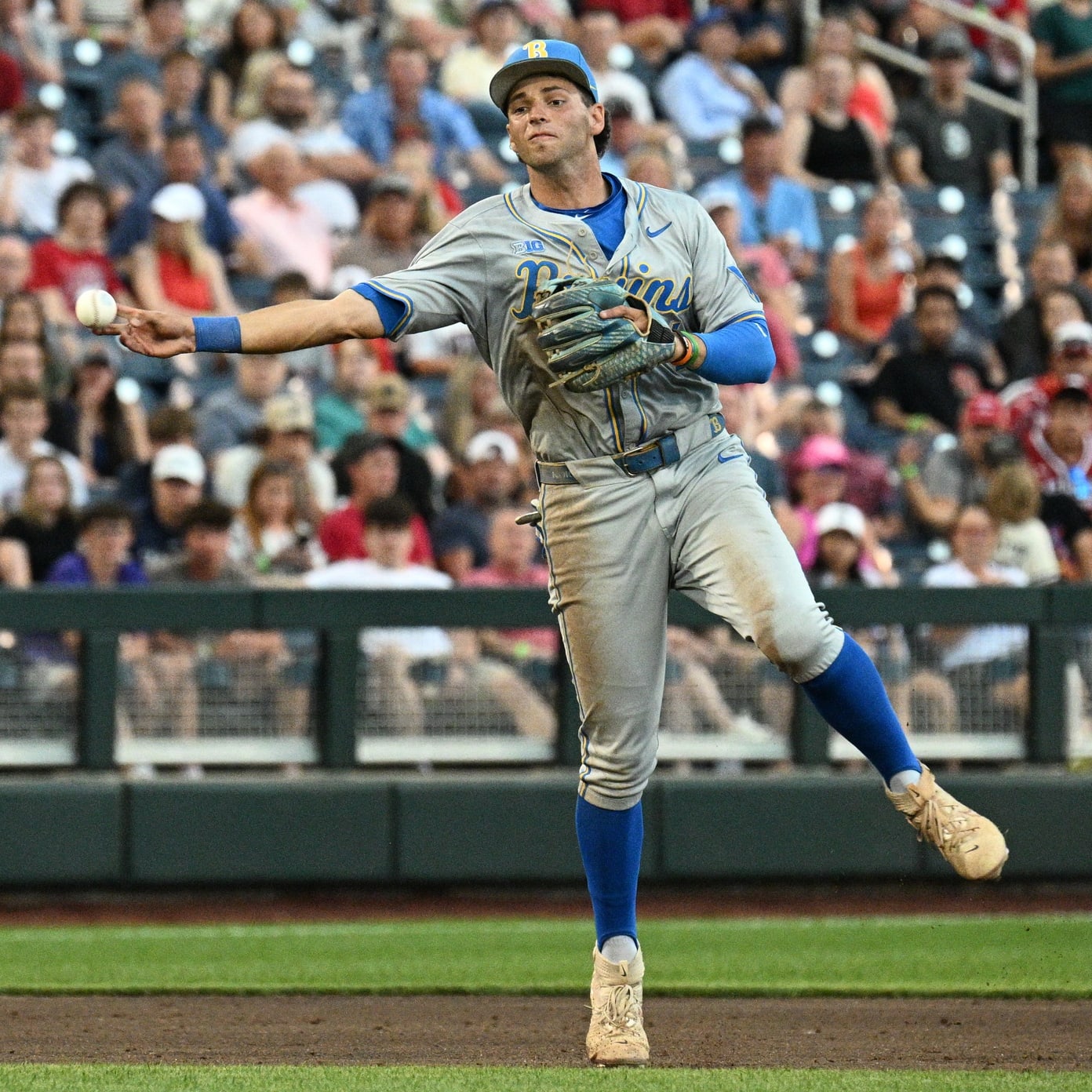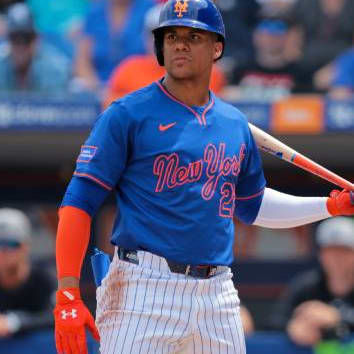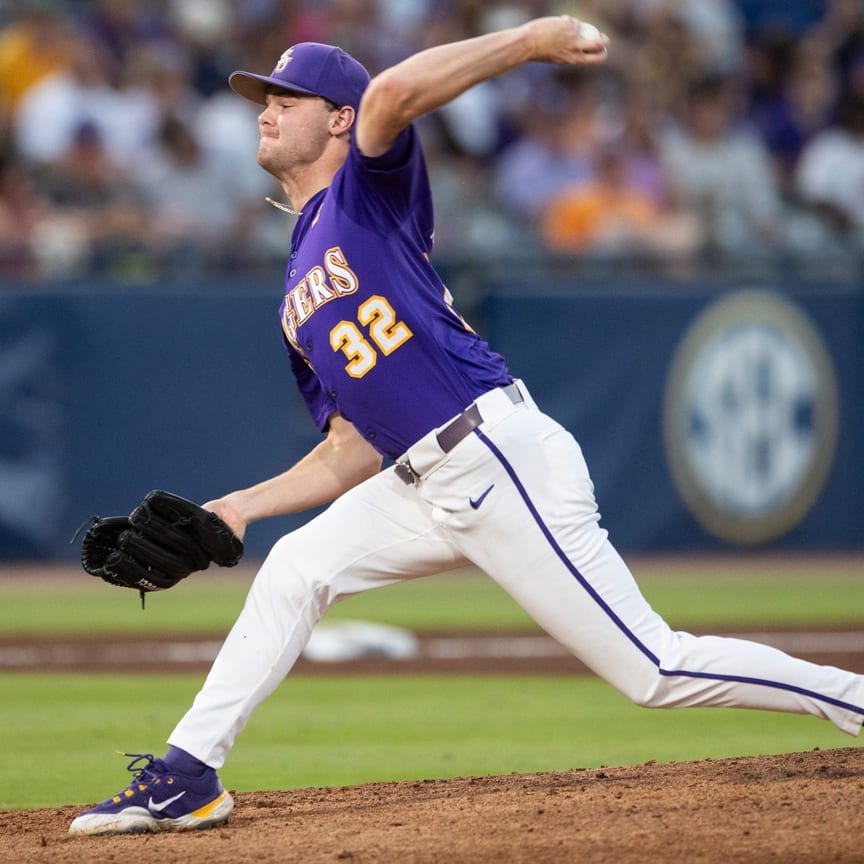Remember the toughest decisions you made during draft season? Maybe you lucked into the first overall pick but were faced with choosing between five players who looked almost equally deserving. Maybe an injury-prone player you normally didn't target fell much further than usual, and you had to decide whether to be the one to take the chance on him. Maybe you had a difficult choice between your favorite sleeper and a boring veteran who filled a need in your lineup.
A third of the way into the season, do you find yourself wishing you had gone in a different direction? Second Chance leagues, which draft typically on Memorial Day weekend or around the midpoint of the season, offer the best chance to live in those alternate universes, at least until time travel is invented. If your first two months haven't gone as planned, or even if you just like drafting, these leagues are worth looking into.
This week, we'll be taking a look at some ADP data from NFBC's Second Chance drafts. While there are definitely some small-sample caveats that accompany data sets this small (just four drafts so far), it's still useful to see what a handful of invested fantasy players would do if the season started today. At the very least, this data provides something of an updated market price, which can be helpful for gauging a player's trade value even if (like me) you aren't currently planning on joining a second chance draft.
I'll go position
Remember the toughest decisions you made during draft season? Maybe you lucked into the first overall pick but were faced with choosing between five players who looked almost equally deserving. Maybe an injury-prone player you normally didn't target fell much further than usual, and you had to decide whether to be the one to take the chance on him. Maybe you had a difficult choice between your favorite sleeper and a boring veteran who filled a need in your lineup.
A third of the way into the season, do you find yourself wishing you had gone in a different direction? Second Chance leagues, which draft typically on Memorial Day weekend or around the midpoint of the season, offer the best chance to live in those alternate universes, at least until time travel is invented. If your first two months haven't gone as planned, or even if you just like drafting, these leagues are worth looking into.
This week, we'll be taking a look at some ADP data from NFBC's Second Chance drafts. While there are definitely some small-sample caveats that accompany data sets this small (just four drafts so far), it's still useful to see what a handful of invested fantasy players would do if the season started today. At the very least, this data provides something of an updated market price, which can be helpful for gauging a player's trade value even if (like me) you aren't currently planning on joining a second chance draft.
I'll go position by position (or group), comparing each player's March ADP to his Second Chance ADP to build this week's lists of risers and fallers. I'll also note where each player ranks to date according to our earned auction values and where each player ranks according to the FanGraphs Auction Calculator using THE BAT X, my preferred in-season projection system. I'll leave out risers who remain outside the top-345 (i.e. bench players or worse in 15-team mixed leagues) and omit fallers who began outside that same range. I'm also ranking risers by percent of possible spots gained as usual, since it's more impressive to go from 20 to 1 than from 400 to 300.
RISERS
Catcher
| Player | Team | March ADP | Second Chance ADP | % Gain | Earned Value Rank | ROS THE BAT X Rank |
|---|---|---|---|---|---|---|
| Francisco Alvarez | NYM | 541.0 | 162.3 | 70.1% | 261 | 345 |
| Connor Wong | BOS | 735.6 | 274.0 | 62.8% | 358 | 225 |
| Yan Gomes | CHC | 582.8 | 284.8 | 51.2% | 258 | 226 |
| Elias Diaz | COL | 368.9 | 192.0 | 48.1% | 127 | 138 |
| Blake Sabol | SFG | 555.0 | 302.5 | 45.1% | 301 | 330 |
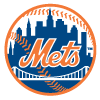 Francisco Alvarez, Mets: While Alvarez did make a very brief, five-game debut late last season, his ADP this March reflected the fact that he wasn't expected to make the Opening Day roster. Those predictions came true, but he wound up in the big leagues in early April nonetheless after Omar Narvaez suffered a long-term calf injury. It took some time for the rookie to earn a true starting job, with the Mets seemingly hesitant to turn the reins over to a 21-year-old backstop with defensive questions, but he's the unquestioned No. 1 at this point, starting 18 of the last 22 games behind the dish. His bat has been as advertised, as he's slashing .259/.316/.537 (good for a 134 wRC+) with eight homers in 34 games. His expected stats do suggest he's gotten a bit lucky, however, as he's outpaced his .433 xSLG by over 100 points, and Narvaez should be back soon, presumably cutting into Alvarez's time by at least a small amount. It's possible Alvarez's fantasy value is at a temporary high and that now is a great time to deal him, though if you hold onto him you're almost certain to get far more than you paid for. He looks like the real deal already.
Francisco Alvarez, Mets: While Alvarez did make a very brief, five-game debut late last season, his ADP this March reflected the fact that he wasn't expected to make the Opening Day roster. Those predictions came true, but he wound up in the big leagues in early April nonetheless after Omar Narvaez suffered a long-term calf injury. It took some time for the rookie to earn a true starting job, with the Mets seemingly hesitant to turn the reins over to a 21-year-old backstop with defensive questions, but he's the unquestioned No. 1 at this point, starting 18 of the last 22 games behind the dish. His bat has been as advertised, as he's slashing .259/.316/.537 (good for a 134 wRC+) with eight homers in 34 games. His expected stats do suggest he's gotten a bit lucky, however, as he's outpaced his .433 xSLG by over 100 points, and Narvaez should be back soon, presumably cutting into Alvarez's time by at least a small amount. It's possible Alvarez's fantasy value is at a temporary high and that now is a great time to deal him, though if you hold onto him you're almost certain to get far more than you paid for. He looks like the real deal already.
Corner Infield
| Player | Team | POS | March ADP | Second Chance ADP | % Gain | Earned Value Rank | ROS THE BAT X Rank |
|---|---|---|---|---|---|---|---|
| Taylor Walls | TBR | 2B/3B/SS | 701.4 | 197.5 | 71.9% | 68 | 349 |
| Yandy Diaz | TBR | 1B/3B | 273.2 | 88.0 | 68.0% | 32 | 98 |
| Zach McKinstry | DET | 2B/3B/OF | 745.4 | 265.5 | 64.5% | 176 | 852 |
| Luke Raley | TBR | 1B/OF | 741.2 | 294.8 | 60.3% | 110 | 567 |
| Ezequiel Duran | TEX | 3B/SS | 726.3 | 298.5 | 59.0% | 145 | 464 |
 Zach McKinstry, Tigers: I'll admit to being startled by just how strong McKinstry's numbers were as I did the research for this article. If you'd told me heading into the season that he'd emerge as a regular for Detroit by Memorial Day, I wouldn't have been shocked, as he was a moderately interesting prospect once upon a time and isn't exactly facing top-tier competition from his teammates. But to see him as the everyday leadoff man with a .291/.406/.441 slash line (142 wRC+) is quite a surprise. Toss in four homers and 10 steals (prorating to 15 and 38 across 600 plate appearances) and we have the makings of quite an interesting fantasy player. It's hard to fully buy in given that McKinstry has never shown these skills before — and THE BAT X sure seems skeptical, largely due to a lack of projected starts — but his success this season has been no fluke. Check out the massive gains he's made in both plate discipline and power:
Zach McKinstry, Tigers: I'll admit to being startled by just how strong McKinstry's numbers were as I did the research for this article. If you'd told me heading into the season that he'd emerge as a regular for Detroit by Memorial Day, I wouldn't have been shocked, as he was a moderately interesting prospect once upon a time and isn't exactly facing top-tier competition from his teammates. But to see him as the everyday leadoff man with a .291/.406/.441 slash line (142 wRC+) is quite a surprise. Toss in four homers and 10 steals (prorating to 15 and 38 across 600 plate appearances) and we have the makings of quite an interesting fantasy player. It's hard to fully buy in given that McKinstry has never shown these skills before — and THE BAT X sure seems skeptical, largely due to a lack of projected starts — but his success this season has been no fluke. Check out the massive gains he's made in both plate discipline and power:
| Year(s) | BB% | K% | Barrel% |
|---|---|---|---|
| 2020-2022 | 7.1% | 28.8% | 6.1% |
| 2023 | 15.4% | 19.2% | 11.0% |
McKinstry's improvements have been so dramatic across board as to make him practically unrecognizable, but he's shown no signs of slowing down. His last 10 games have been even better, as he owns a 1.039 OPS with five steals and more walks than strikeouts over that stretch.
Middle Infield
| Player | Team | POS | March ADP | Second Chance ADP | % Gain | Earned Value Rank | ROS THE BAT X Rank |
|---|---|---|---|---|---|---|---|
| Fernando Tatis Jr. | SD | SS/OF | 17.3 | 2.5 | 90.8% | 164 | 1 |
| Wander Franco | TBR | SS | 82.3 | 15.8 | 81.9% | 6 | 65 |
| Nolan Gorman | STL | 2B | 457.2 | 91.8 | 80.1% | 29 | 232 |
| Matt McLain | CIN | SS | 750.5 | 192.5 | 74.5% | 438 | 181 |
| Taylor Walls | TBR | 2B/3B/SS | 701.4 | 197.5 | 71.9% | 68 | 349 |
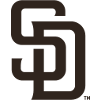 Fernando Tatis Jr., Padres: Tatis was the player whose second-chance ADP I was most interested in. His preseason draft stock was of course affected by the fact that he was set to miss most of the first month while serving the conclusion of his PED suspension, so how would he be viewed if he was available for the entire year? Apparently as a consensus top-five pick, as he went between second and fourth in all four drafts. It's interesting to see that he's firmly back as a top-tier bat despite the fact that his first 34 games back after a very long layoff haven't gone entirely smoothly. He's hitting .247/.297/.466, good for a merely above-average 108 wRC+. He's not hitting the ball nearly as hard, with his barrel rate falling to 9.5 percent after finishing at a ridiculous 21.3 percent in 2021, and his hard-hit rate has dropped from 55.6 percent to 42.2 percent. He is hitting it much more often, however, cutting his strikeout rate from 28.0 percent to 19.6 percent, so there's reason to believe his batting average could jump soon. He's still managed nine homers and five steals (on pace for 34 and 19 across 600 plate appearances), giving him plenty of value even as he works his way back to his previous form, and expectations evidently remain as high as ever. If the power returns while his added contact remains, it's possible the expectations are still too low.
Fernando Tatis Jr., Padres: Tatis was the player whose second-chance ADP I was most interested in. His preseason draft stock was of course affected by the fact that he was set to miss most of the first month while serving the conclusion of his PED suspension, so how would he be viewed if he was available for the entire year? Apparently as a consensus top-five pick, as he went between second and fourth in all four drafts. It's interesting to see that he's firmly back as a top-tier bat despite the fact that his first 34 games back after a very long layoff haven't gone entirely smoothly. He's hitting .247/.297/.466, good for a merely above-average 108 wRC+. He's not hitting the ball nearly as hard, with his barrel rate falling to 9.5 percent after finishing at a ridiculous 21.3 percent in 2021, and his hard-hit rate has dropped from 55.6 percent to 42.2 percent. He is hitting it much more often, however, cutting his strikeout rate from 28.0 percent to 19.6 percent, so there's reason to believe his batting average could jump soon. He's still managed nine homers and five steals (on pace for 34 and 19 across 600 plate appearances), giving him plenty of value even as he works his way back to his previous form, and expectations evidently remain as high as ever. If the power returns while his added contact remains, it's possible the expectations are still too low.
Outfield
| Player | Team | POS | March ADP | Second Chance ADP | % Gain | Earned Value Rank | ROS THE BAT X Rank |
|---|---|---|---|---|---|---|---|
| Ronald Acuna Jr. | ATL | OF | 2.28 | 1.0 | 100.0% | 1 | 2 |
| Fernando Tatis Jr. | SD | SS/OF | 17.3 | 2.5 | 90.8% | 164 | 1 |
| Josh Lowe | TBR | OF | 559.1 | 80.3 | 85.8% | 8 | 373 |
| Esteury Ruiz | OAK | OF | 225.3 | 66.5 | 70.8% | 23 | 243 |
| Zach McKinstry | DET | 2B/3B/OF | 745.4 | 265.5 | 64.5% | 176 | 852 |
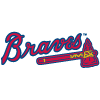 Ronald Acuna Jr., Atlanta: I haven't featured Acuna as a riser yet this season, as it's hard to truly rise when you're already considered one of the best players in baseball. It's time to give him his due, though, as he's gone from one of the best players in baseball to the best player in baseball over the course of the last two months, at least in the eyes of fantasy drafters. Prior to Opening Day, Acuna, Aaron Judge, Trea Turner, Jose Ramirez and Julio Rodriguez all had plenty of backers for the No. 1 pick; over Memorial Day weekend, Acuna swept the top spot in all four second-chance drafts, while Judge was the only member of that quintet who remained in the top five. Acuna's first two months have demonstrated across-the-board improvement in his second season back from a torn ACL. His 29 steals coming off surgery last season were already plenty impressive, but his 22 this season put him on pace for 65. That speed takes his fantasy value over the top, but it's Acuna's sudden drop in strikeout rate that could be most significant for his long-term prospects. He's never previously recorded a strikeout rate below 23.6 percent, but he's all the way down at 13.7 percent this season, sending his batting average soaring up to .323 as a result.
Ronald Acuna Jr., Atlanta: I haven't featured Acuna as a riser yet this season, as it's hard to truly rise when you're already considered one of the best players in baseball. It's time to give him his due, though, as he's gone from one of the best players in baseball to the best player in baseball over the course of the last two months, at least in the eyes of fantasy drafters. Prior to Opening Day, Acuna, Aaron Judge, Trea Turner, Jose Ramirez and Julio Rodriguez all had plenty of backers for the No. 1 pick; over Memorial Day weekend, Acuna swept the top spot in all four second-chance drafts, while Judge was the only member of that quintet who remained in the top five. Acuna's first two months have demonstrated across-the-board improvement in his second season back from a torn ACL. His 29 steals coming off surgery last season were already plenty impressive, but his 22 this season put him on pace for 65. That speed takes his fantasy value over the top, but it's Acuna's sudden drop in strikeout rate that could be most significant for his long-term prospects. He's never previously recorded a strikeout rate below 23.6 percent, but he's all the way down at 13.7 percent this season, sending his batting average soaring up to .323 as a result.
Starting Pitcher
| Player | Team | March ADP | Second Chance ADP | % Gain | Earned Value Rank | ROS THE BAT X Rank |
|---|---|---|---|---|---|---|
| Spencer Strider | ATL | 28.3 | 2.8 | 93.6% | 17 | 4 |
| Bryce Miller | SEA | 734.5 | 81.3 | 89.1% | 170 | 262 |
| Shane McClanahan | TBR | 39.3 | 7.8 | 82.4% | 7 | 54 |
| Tanner Bibee | CLE | 731.7 | 145.8 | 80.2% | 344 | 273 |
| Kevin Gausman | TOR | 61.3 | 14.5 | 77.6% | 70 | 11 |
 Spencer Strider, Atlanta: Strider had plenty of fans during draft season — how could he not after posting a 2.67 ERA and 38.3 percent strikeout rate last year — but was still viewed as clearly behind the top tier of Gerrit Cole and Corbin Burnes by most fantasy players. Two months into the season, he's moved not just into the clear top spot among pitchers (according to this set of drafters) but all the way up into the top five overall. Strider has done everything he can to prove his breakout last year was no fluke. His ERA remains excellent at 2.97, and his strikeout rate has someone gotten even higher, coming in at 41.6 percent. He's not a workhorse, sitting merely tied for 28th with 63.2 innings pitched, yet his absurd strikeout rate means his 106 strikeouts lead the league by a wide margin, with Shohei Ohtani's 90 coming in second. He's also been incredibly consistent. Even in his worst start of the year (May 17 at Texas), he still lasted five innings and struck out seven batters, and his four earned runs didn't kill you. There are still fair questions to ask about his workload down the stretch given that he threw a modest 131.2 innings last season, but his per-inning performance is undeniable.
Spencer Strider, Atlanta: Strider had plenty of fans during draft season — how could he not after posting a 2.67 ERA and 38.3 percent strikeout rate last year — but was still viewed as clearly behind the top tier of Gerrit Cole and Corbin Burnes by most fantasy players. Two months into the season, he's moved not just into the clear top spot among pitchers (according to this set of drafters) but all the way up into the top five overall. Strider has done everything he can to prove his breakout last year was no fluke. His ERA remains excellent at 2.97, and his strikeout rate has someone gotten even higher, coming in at 41.6 percent. He's not a workhorse, sitting merely tied for 28th with 63.2 innings pitched, yet his absurd strikeout rate means his 106 strikeouts lead the league by a wide margin, with Shohei Ohtani's 90 coming in second. He's also been incredibly consistent. Even in his worst start of the year (May 17 at Texas), he still lasted five innings and struck out seven batters, and his four earned runs didn't kill you. There are still fair questions to ask about his workload down the stretch given that he threw a modest 131.2 innings last season, but his per-inning performance is undeniable.
Relief Pitcher
| Player | Team | March ADP | Second Chance ADP | % Gain | Earned Value Rank | ROS THE BAT X Rank |
|---|---|---|---|---|---|---|
| Carlos Estevez | LAA | 334.4 | 100.5 | 70.2% | 108 | 359 |
| Paul Sewald | SEA | 199.2 | 64.5 | 68.0% | 120 | 295 |
| Yennier Cano | BAL | undrafted | 252.8 | 66.4%* | 107 | 602 |
| Miguel Castro | ARI | 691.9 | 234.8 | 66.2% | 186 | 583 |
| Andrew Chafin | ARI | 683.1 | 254.3 | 62.9% | 215 | 423 |
*Undrafted players were assigned a March ADP of 751 for the purposes of calculating this column.
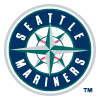 Paul Sewald, Mariners: Sewald led the Mariners with 20 saves last season, a mark he paired with a 2.67 ERA, but Seattle's committee tendencies and the presence of the similarly dominant Andres Munoz meant that the veteran wasn't drafted as a true closer over the winter. He was very much seen as a true closer over second-chance weekend, tying Raisel Iglesias in ADP and edging past Alexis Diaz and Jhoan Duran. Part of that is due to his outstanding performance thus far, as he's ridden a 35.6 percent strikeout rate and 6.7 percent walk rate to a 3.09 ERA. (The only pitcher who can match both rate stats in at least 20 innings this season is Jacob deGrom.) Sewald's talent wasn't really in doubt prior to the season, however, so his rise is seemingly more about circumstance. Munoz has been out with a strained shoulder since early April, and Sewald has established himself as a true closer rather than a committee leader in his absence, recording 11 of Seattle's 14 saves. Munoz has begun his rehab assignment, so Sewald could see his share of saves dip soon, but keep in mind that Munoz only saved four games last season, so any dip could end up being fairly small.
Paul Sewald, Mariners: Sewald led the Mariners with 20 saves last season, a mark he paired with a 2.67 ERA, but Seattle's committee tendencies and the presence of the similarly dominant Andres Munoz meant that the veteran wasn't drafted as a true closer over the winter. He was very much seen as a true closer over second-chance weekend, tying Raisel Iglesias in ADP and edging past Alexis Diaz and Jhoan Duran. Part of that is due to his outstanding performance thus far, as he's ridden a 35.6 percent strikeout rate and 6.7 percent walk rate to a 3.09 ERA. (The only pitcher who can match both rate stats in at least 20 innings this season is Jacob deGrom.) Sewald's talent wasn't really in doubt prior to the season, however, so his rise is seemingly more about circumstance. Munoz has been out with a strained shoulder since early April, and Sewald has established himself as a true closer rather than a committee leader in his absence, recording 11 of Seattle's 14 saves. Munoz has begun his rehab assignment, so Sewald could see his share of saves dip soon, but keep in mind that Munoz only saved four games last season, so any dip could end up being fairly small.
FALLERS
Catcher
| Player | Team | March ADP | Second Chance ADP | Spots Dropped | Earned Value Rank | ROS THE BAT X Rank |
|---|---|---|---|---|---|---|
| Logan O'Hoppe | LAA | 248.2 | 648.3 | 400.1 | 486 | 695 |
| Christian Vazquez | MIN | 256.6 | 641.3 | 384.7 | 555 | 288 |
| Danny Jansen | TOR | 181.8 | 285.8 | 103.9 | 283 | 149 |
| Alejandro Kirk | TOR | 102.3 | 184.5 | 82.2 | 474 | 119 |
| MJ Melendez | KCR | 96.5 | 164.3 | 67.8 | 291 | 71 |
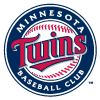 Christian Vazquez, Twins: If you polled everyone who drafted Vazquez prior to the season, I doubt you'd find too many who were thrilled about the pick, but for years, the veteran backstop had been a steady compiler who kept you from having to deal with the uninspiring mess of waiver-wire catchers in deeper mixed leagues. His performance thus far illustrates the often hidden risk that comes with such players, however. You might think of a compiler as the quintessential safe play, but anyone on the wrong side of 30 who lacks a standout skill is at risk of looking like a backup with some minor age-related regression. The gap between "just barely good enough at everything" and "not quite good enough at anything" is narrow. Vazquez hit .265 with an average of 7.5 homers and 4.5 steals over the last two seasons; this year, he's hitting .233 and has yet to homer or steal. His 24.8 percent strikeout rate is his biggest concern, as he kept his strikeout rate under 17 percent over the last two seasons. He's also yet to manage a single barrel, an "achievement" matched only by Elvis Andrus among hitters with at least 100 plate appearances. As a result, Vazquez has fallen into a roughly 50-50 split behind the plate with Ryan Jeffers.
Christian Vazquez, Twins: If you polled everyone who drafted Vazquez prior to the season, I doubt you'd find too many who were thrilled about the pick, but for years, the veteran backstop had been a steady compiler who kept you from having to deal with the uninspiring mess of waiver-wire catchers in deeper mixed leagues. His performance thus far illustrates the often hidden risk that comes with such players, however. You might think of a compiler as the quintessential safe play, but anyone on the wrong side of 30 who lacks a standout skill is at risk of looking like a backup with some minor age-related regression. The gap between "just barely good enough at everything" and "not quite good enough at anything" is narrow. Vazquez hit .265 with an average of 7.5 homers and 4.5 steals over the last two seasons; this year, he's hitting .233 and has yet to homer or steal. His 24.8 percent strikeout rate is his biggest concern, as he kept his strikeout rate under 17 percent over the last two seasons. He's also yet to manage a single barrel, an "achievement" matched only by Elvis Andrus among hitters with at least 100 plate appearances. As a result, Vazquez has fallen into a roughly 50-50 split behind the plate with Ryan Jeffers.
Corner Infield
| Player | Team | POS | March ADP | Second Chance ADP | Spots Dropped | Earned Value Rank | ROS THE BAT X Rank |
|---|---|---|---|---|---|---|---|
| Jose Miranda | MIN | 1B/3B | 154.2 | 751.0* | 596.8 | 519 | 895 |
| Josh Rojas | ARI | 2B/3B | 215.4 | 751.0 | 535.6 | 252 | 331 |
| Wil Myers | CIN | 1B/OF | 234.0 | 751.0 | 517.0 | 534 | 443 |
| Jean Segura | MIA | 2B/3B | 242.0 | 751.0 | 509.0 | 603 | 312 |
| Trey Mancini | CHC | 1B/OF | 245.4 | 751.0 | 505.6 | 387 | 286 |
* Again using 751 for undrafted players, as NFBC's largest leagues draft 750 players.
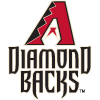 Josh Rojas, Diamondbacks: Rojas had plenty of believers over the winter coming off a season in which he stole 23 bases and hit a solid .269, with his defensive versatility giving him multiple paths to playing time on a roster that had started to become more crowded. Through the first two months of the season, playing time hasn't necessarily been a problem, as he's held down the strong side of a platoon at third base, but his performance hasn't been particularly impressive. His strikeout and walk rates have both moved the wrong way by a couple ticks, while his hard hit rate has dropped from 36.1 percent to 28.1 percent, a mark that sits in the eighth percentile. As a result, his slash line has dropped to .243/.307/.324, good for just a 73 wRC+. He's yet to hit a homer, and given how weakly he's impacting the ball, it's beginning to look like his 11 homers from two seasons ago may wind up as his career high. His six steals have kept his fantasy value from bottoming out, but there's bad news there as well, with his sprint speed dropping from the 50th to the 31st percentile. Meanwhile, Arizona sits tied for second in the National League. If they're buyers at the deadline, Rojas could be pushed into the utility role which seems to suit him best.
Josh Rojas, Diamondbacks: Rojas had plenty of believers over the winter coming off a season in which he stole 23 bases and hit a solid .269, with his defensive versatility giving him multiple paths to playing time on a roster that had started to become more crowded. Through the first two months of the season, playing time hasn't necessarily been a problem, as he's held down the strong side of a platoon at third base, but his performance hasn't been particularly impressive. His strikeout and walk rates have both moved the wrong way by a couple ticks, while his hard hit rate has dropped from 36.1 percent to 28.1 percent, a mark that sits in the eighth percentile. As a result, his slash line has dropped to .243/.307/.324, good for just a 73 wRC+. He's yet to hit a homer, and given how weakly he's impacting the ball, it's beginning to look like his 11 homers from two seasons ago may wind up as his career high. His six steals have kept his fantasy value from bottoming out, but there's bad news there as well, with his sprint speed dropping from the 50th to the 31st percentile. Meanwhile, Arizona sits tied for second in the National League. If they're buyers at the deadline, Rojas could be pushed into the utility role which seems to suit him best.
Middle Infield
| Player | Team | POS | March ADP | Second Chance ADP | Spots Dropped | Earned Value Rank | ROS THE BAT X Rank |
|---|---|---|---|---|---|---|---|
| Vaughn Grissom | ATL | 2B/SS | 213.7 | 751.0 | 537.3 | 588 | 976 |
| Josh Rojas | ARI | 2B/3B | 215.4 | 751.0 | 535.6 | 252 | 331 |
| Jean Segura | MIA | 2B/3B | 242.0 | 751.0 | 509.0 | 603 | 312 |
| Kolten Wong | SEA | 2B | 270.1 | 751.0 | 480.9 | 646 | 626 |
| Adalberto Mondesi | BOS | SS | 293.9 | 751.0 | 457.1 | N/A | 314 |
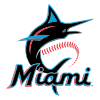 Jean Segura, Marlins: Much of what was said about compilers above applies just as well to Segura as it does to Vazquez. If you prorate the 2020 season to 162 games, he hit between .266 and .290 in his four seasons in Philadelphia while managing 10-19 homers and 5-13 steals. Those numbers don't turn heads, but when you throw in his corner/middle dual eligibility, he seemed like an ideal candidate to round out the back of your lineup in 12- and 15-team mixed leagues. He's fallen flat on his face since his move to Miami, however, hitting .198/.261/.228 with zero homers and three steals in 47 games. If (like me) you held him through the Marlins' four-game series at Coors Field last week only to see him go 0-for-12, it's probably time to let him go. His 16.9 percent strikeout rate is still good but is three points above his career average, and given that he's never hit the ball particularly hard (33.5 percent hard-hit career rate during the Statcast era), he needs to be close to elite in that category to be an offensive weapon. Now 33 years old, a continued slide into bench territory is easier to envision than a full rebound.
Jean Segura, Marlins: Much of what was said about compilers above applies just as well to Segura as it does to Vazquez. If you prorate the 2020 season to 162 games, he hit between .266 and .290 in his four seasons in Philadelphia while managing 10-19 homers and 5-13 steals. Those numbers don't turn heads, but when you throw in his corner/middle dual eligibility, he seemed like an ideal candidate to round out the back of your lineup in 12- and 15-team mixed leagues. He's fallen flat on his face since his move to Miami, however, hitting .198/.261/.228 with zero homers and three steals in 47 games. If (like me) you held him through the Marlins' four-game series at Coors Field last week only to see him go 0-for-12, it's probably time to let him go. His 16.9 percent strikeout rate is still good but is three points above his career average, and given that he's never hit the ball particularly hard (33.5 percent hard-hit career rate during the Statcast era), he needs to be close to elite in that category to be an offensive weapon. Now 33 years old, a continued slide into bench territory is easier to envision than a full rebound.
Outfield
| Player | Team | POS | March ADP | Second Chance ADP | Spots Dropped | Earned Value Rank | ROS THE BAT X Rank |
|---|---|---|---|---|---|---|---|
| Oscar Gonzalez | CLE | OF | 217.5 | 751.0 | 533.5 | 642 | 653 |
| Wil Myers | CIN | 1B/OF | 234.0 | 751.0 | 517.0 | 534 | 443 |
| Garrett Mitchell | MIL | OF | 241.3 | 751.0 | 509.7 | 528 | 1037 |
| Jesse Winker | MIL | OF | 244.4 | 751.0 | 506.6 | 571 | 364 |
| Trey Mancini | CHC | 1B/OF | 245.4 | 751.0 | 505.6 | 387 | 286 |
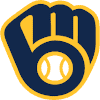 Jesse Winker, Brewers: Winker showed excellent patience and bat-to-ball skills in his first three MLB seasons, then sacrificed some contact for a power boost in the shortened 2020 season, and then finally put it all together for an excellent 2021 campaign in which he hit .305 with 24 homers in 110 games. Two years later, he's gone undrafted over Memorial Day weekend, with the neck strain which sent him to the injured list Tuesday seemingly only partially to blame. His strikeouts and walks remained quite strong last year with Seattle but a combination of a tough park, some bad luck (.251 BABIP) and some weaker contact led to him hitting just .219/.344/.344. This year, though, he's fallen off a cliff. His 11.8 percent walk rate remains high, but his 24.4 percent strikeout rate is nearly seven points above his career mark. He's also seen his barrel rate dip to 2.6 percent, will below his 7.6 percent mark as a Mariner to say nothing of his 11.7 percent rate over the prior to seasons. The result has been a .204/.315/.231 line with zero homers and just three doubles in 39 games. There's seemingly little need to wait out his injury in all but the deepest leagues, with plenty of drafters having long since cut bait already.
Jesse Winker, Brewers: Winker showed excellent patience and bat-to-ball skills in his first three MLB seasons, then sacrificed some contact for a power boost in the shortened 2020 season, and then finally put it all together for an excellent 2021 campaign in which he hit .305 with 24 homers in 110 games. Two years later, he's gone undrafted over Memorial Day weekend, with the neck strain which sent him to the injured list Tuesday seemingly only partially to blame. His strikeouts and walks remained quite strong last year with Seattle but a combination of a tough park, some bad luck (.251 BABIP) and some weaker contact led to him hitting just .219/.344/.344. This year, though, he's fallen off a cliff. His 11.8 percent walk rate remains high, but his 24.4 percent strikeout rate is nearly seven points above his career mark. He's also seen his barrel rate dip to 2.6 percent, will below his 7.6 percent mark as a Mariner to say nothing of his 11.7 percent rate over the prior to seasons. The result has been a .204/.315/.231 line with zero homers and just three doubles in 39 games. There's seemingly little need to wait out his injury in all but the deepest leagues, with plenty of drafters having long since cut bait already.
Starting Pitcher
| Player | Team | March ADP | Second Chance ADP | Spots Dropped | Earned Value Rank | ROS THE BAT X Rank |
|---|---|---|---|---|---|---|
| Jeffrey Springs | TBR | 145.7 | 751.0 | 605.3 | 237 | N/A |
| Dustin May | LAD | 157.7 | 751.0 | 593.4 | 122 | 276 |
| Drew Rasmussen | TBR | 158.3 | 751.0 | 592.7 | 135 | 229 |
| Kyle Wright | ATL | 158.4 | 751.0 | 592.6 | 927 | 368 |
| Brady Singer | KCR | 189.7 | 751.0 | 561.3 | 953 | 324 |
| Robbie Ray | SEA | 89.4 | 606.0 | 516.6 | N/A | N/A |
| Jameson Taillon | CHC | 237.6 | 51.0 | 513.5 | 970 | 251 |
| Tyler Mahle | MIN | 245.5 | 751.0 | 505.6 | 423 | N/A |
| Tyler Anderson | LAA | 262.1 | 751.0 | 488.9 | 932 | 366 |
| Jose Urquidy | HOU | 264.9 | 751.0 | 486.1 | 711 | 282 |
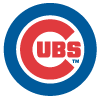 Jameson Taillon, Cubs: I extended the table above to 10 names to account for the fact that most falling pitchers have fallen due to injury, giving us the chance to discuss Taillon's horrible tenure with the Cubs thus far. After signing a four-year, $68 million deal over the winter, Taillon started slowly, posting a mediocre 4.50 ERA in his first three outings, though his 16:4 K:BB hinted at better things to come. Instead, he hit the injured list with a strained left groin, and while his absence was brief, his performance since his return couldn't be much worse. He hasn't completed five innings in any of his five starts, stumbling to a 10.90 ERA and 1.96 WHIP. If you're looking for silver linings, his 8.2 percent walk rate over that run is perfectly fine, and his 18.8 percent strikeout rate is poor but not awful. Opposing hitters are simply teeing off on him whenever they make contact. He's given up 2.6 HR/9 over that stretch, with hitters managing a 14.8 percent barrel rate, above players like Kyle Schwarber (14.2 percent) and Ronald Acuna (14.1 percent) and nearly tied with Juan Soto (14.9 percent). It's generally thought that pitchers don't exert all that much control over the batted balls hit against them, with hitters deserving the majority of the credit, but results this extreme can't be ignored.
Jameson Taillon, Cubs: I extended the table above to 10 names to account for the fact that most falling pitchers have fallen due to injury, giving us the chance to discuss Taillon's horrible tenure with the Cubs thus far. After signing a four-year, $68 million deal over the winter, Taillon started slowly, posting a mediocre 4.50 ERA in his first three outings, though his 16:4 K:BB hinted at better things to come. Instead, he hit the injured list with a strained left groin, and while his absence was brief, his performance since his return couldn't be much worse. He hasn't completed five innings in any of his five starts, stumbling to a 10.90 ERA and 1.96 WHIP. If you're looking for silver linings, his 8.2 percent walk rate over that run is perfectly fine, and his 18.8 percent strikeout rate is poor but not awful. Opposing hitters are simply teeing off on him whenever they make contact. He's given up 2.6 HR/9 over that stretch, with hitters managing a 14.8 percent barrel rate, above players like Kyle Schwarber (14.2 percent) and Ronald Acuna (14.1 percent) and nearly tied with Juan Soto (14.9 percent). It's generally thought that pitchers don't exert all that much control over the batted balls hit against them, with hitters deserving the majority of the credit, but results this extreme can't be ignored.
Relief Pitcher
| Player | Team | March ADP | Second Chance ADP | Spots Dropped | Earned Value Rank | ROS THE BAT X Rank |
|---|---|---|---|---|---|---|
| Jose Leclerc | TEX | 213.7 | 751.0 | 537.3 | 700 | 680 |
| Daniel Bard | COL | 173.6 | 640.8 | 467.1 | 489 | 887 |
| Seranthony Dominguez | PHI | 301.5 | 751.0 | 449.5 | 665 | 646 |
| Jorge Lopez | MIN | 284.2 | 539.5 | 255.4 | 432 | 594 |
| Kendall Graveman | CWS | 334.9 | 547.0 | 212.1 | 297 | 744 |
 Jorge Lopez, Twins: The general consensus during draft season was that while Jhoan Duran was Minnesota's best reliever, Lopez was plenty talented himself and still stood to earn a fair number of saves, with Duran likely to be deployed earlier in games as needed. While those who drafted him probably expected something more competitive than Duran's current 7-3 lead in saves, Lopez has at least spent some time in the ninth inning this season. Lopez's fall over Memorial Day weekend therefore has more to do with his overall performance than merely a lack of opportunities. While his 3.52 ERA remains perfectly acceptable, his ERA estimators are skeptical, particularly his 4.63 FIP. An inability to miss bats has been his primary problem, something which dates back to last season. Here's how some of his key numbers compare to both his breakout with Baltimore and his rough stretch following his midseason trade to Minnesota:
Jorge Lopez, Twins: The general consensus during draft season was that while Jhoan Duran was Minnesota's best reliever, Lopez was plenty talented himself and still stood to earn a fair number of saves, with Duran likely to be deployed earlier in games as needed. While those who drafted him probably expected something more competitive than Duran's current 7-3 lead in saves, Lopez has at least spent some time in the ninth inning this season. Lopez's fall over Memorial Day weekend therefore has more to do with his overall performance than merely a lack of opportunities. While his 3.52 ERA remains perfectly acceptable, his ERA estimators are skeptical, particularly his 4.63 FIP. An inability to miss bats has been his primary problem, something which dates back to last season. Here's how some of his key numbers compare to both his breakout with Baltimore and his rough stretch following his midseason trade to Minnesota:
| Season | K% | BB% | GB% |
|---|---|---|---|
| 2022, pre-trade | 27.6% | 8.7% | 60.0% |
| 2022, post-trade | 17.6% | 13.7% | 53.7% |
| 2023 | 19.4% | 7.1% | 55.2% |
As you can see, he's continued to keep the ball on the ground and has corrected the control problems he demonstrated down the stretch, but his ability to get whiffs hasn't returned. Given that he owned a 19.0 percent strikeout rate prior to last season, perhaps it's wishful thinking to expect a significant jump in the near future. He's certainly shown no signs of improvement in late May, giving up six runs in 2.1 innings across his last four appearances without striking out a single batter.


